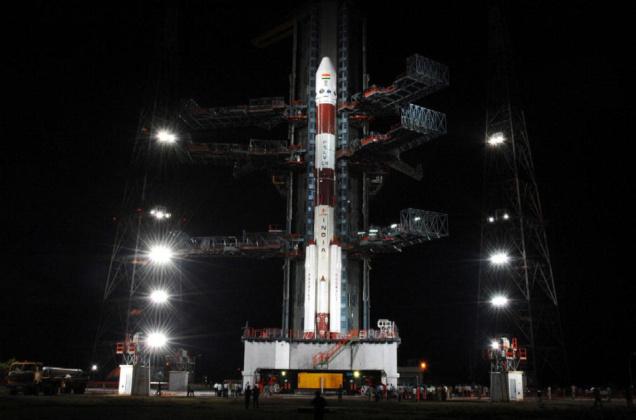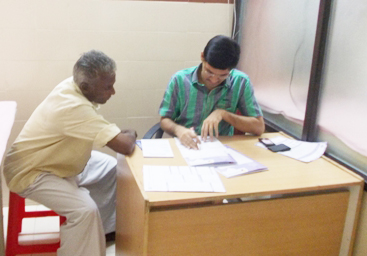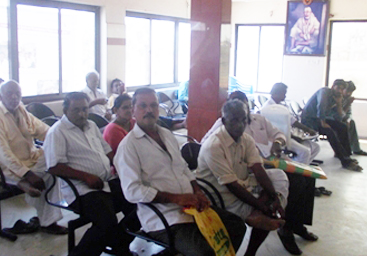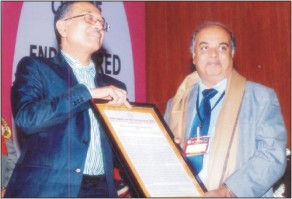 ISRO has, to its credit, developed a sound culture of involving the private sector in several of its projects.
ISRO has, to its credit, developed a sound culture of involving the private sector in several of its projects.
A clutch of private players has emerged as key input providers for India’s missiles.
They are literally fuelling India’s space ambitions. Two medium-sized, listed companies in the private sector are, in their own way, contributing critical propellant technology to launch our satellites and missiles.
While Andhra Sugars, based in Tanuku in the agri-rich coastal Andhra district of West Godavari, has developed a range of liquid propellants that fuel the satellite launch vehicles, Premier Explosives Limited, situated close to Hyderabad, fabricates solid propellants for key missiles. Each has, during the last decade or so, attained expertise, set up sound facilities, and has trained professionals to meet the stringent demands of the Indian space and defence sectors. Interestingly, the core business strengths of both are completely different. For example, Andhra Sugar is mainly into sugar, organic and inorganic chemicals, while Premier Explosives is into providing explosives for the mining and commercial sector.
ANDHRA SUGARS’ EXPERTISE
In space and rocket technology, liquid, solid and hybrid propellants are used. Liquid propellants are derived from petroleum, cryogenic (low temperature) and hypergols (instant igniters). Solid propellants are usually nitro cellulose and nitro glycerine etc., while a hybrid fuel is a mix of liquid and solid. Andhra Sugars has established such skills in its plant located in a small village called Saggonda, approximately 30 km from Kovvuru near Rajahmundry in coastal Andhra Pradesh. The plant routinely produces caustic soda. Hydrogen, which is the raw material for the propellant that the company is making to meet the demands of the Indian Space Research Organisation (ISRO), is a by-product. ISRO uses liquid hydrogen as the propellant in the Geo Stationary Launch Vehicle (GSLV). The GSLV, which can place heavier satellites of the Insat class in orbit has three stages, which are sequentially ignited for the rockets to zoom into space. They are the solid propellant (first), liquid propellant (second) and cryogenic propellant (third). To the credit of this private sector enterprise, Andhra Sugars now fabricates all these propellants.
With technical support from ISRO scientists, the company has set up a facility to liquefy hydrogen gas and then get the desired purity at the plant. This follows an agreement signed in the year 1997 with ISRO. The ISRO got actively involved in cryogenic rocket technology to power the GSLV with initial help from Russia. It was in 2003 that Andhra Sugars signed a formal contract and the plant was established in 2006, says Mr G. Ramesh, a top executive at the plant.
Andhra Sugars has a 20-year contract with ISRO for the supply of propellants. It is the only fabricator of the key material in the country at present. The ISRO has a small facility at Mahendragiri, in Karnataka, where it undertakes tests for cryogenic technology development. Given the association of Andhra Sugars from the mid-1980s in the space programme, ISRO has also supported it in setting up the plant in Saggonda.
ISRO has, to its credit, developed a sound culture of involving the private sector in several of its projects, both for launching and converting the huge amount of satellite data generated towards applications for national development.
Mr Ramesh said separation of hydrogen from caustic soda is easy. However, the difficult part is to liquefy and then purify hydrogen gas to meet the stringent standards demanded by ISRO, especially for the GSLV flight. The company has imported the necessary plant equipment to fulfil the task. It has taken a couple of years, but now it has trained people and gained technical expertise to do it, says Mr Ramesh.
On January 28, 2012, the first batch of liquid hydrogen was dispatched in a special tanker to make sure that the liquid hydrogen is maintained at 20 degrees Kelvin or minus 253 degrees C (cryogenic temperature). To transport the material, a tanker, which is thermally insulated has been specially imported from Europe, he explained. It takes five days to reach the material to Mahendragiri.
Liquid hydrogen is known as rocket fuel because of its wide applications in space technology. It is also used as the fuel storage in an internal combustion engine or fuel cell. Interestingly, hydrogen gas as fuel to power transport vehicles is gaining momentum. Cars and buses running on hydrogen gas have been demonstrated.
MISSILE PROPELLANTS
Premier Explosives Limited, essentially a company involved in the manufacture and marketing of explosives and accessories, got associated with the strategic sector more than a decade ago. It is producing solid propellants for the Defence Research and Development Organisation (DRDO) to power its missiles and also to meet some of the needs of the space programme.
Building on its strengths and trust imposed in it by the DRDO, it has recently expanded facilities at Peddakandukuru in Nalgonda district of Andhra Pradesh. With an investment of Rs 10 crore, this new project will focus on solid propellants for tactical missiles, like Nag (anti-tank), Astra (air-to-air), Akash (surface-to-air) and Pinaka (multiple-rocket launcher).
Mr A. N. Gupta, Chairman and Managing Director of Premier Explosives, said the company has been producing solid propellants since 2003 for the DRDO. The present facility for tactical missiles is an attempt to help the country reach self-reliance in defence supplies. In the successful November, 2011, launch of Agni-IV (beyond 3,500-km range intermediate range ballistic missile), the company was given the job of making the second of the two-stage rocket motors, along with the two igniters.
In the last few years, the Secunderabad-based company, with a turnover of around Rs 103 crore during the fiscal 2010-11, has already supplied critical components like the ‘smokeless’ composition (which helps an aircraft avoid detection after the launch of the missile) and missile motors for the Astra missile and components for the short-range Pinaka missile.
Recognising its capabilities, ISRO has vested it with the responsibility of operation and maintenance of its second propellant plant at the Satish Dhawan Space Centre, SHAR, Sriharikota. Premier Explosives signed an agreement in 2007 for Rs 70 crore for a 10-year period to handle this important task.
PRIVATE SECTOR ROLE
The interesting aspect of the contributions of several small and medium enterprises to the defence programmes is that they aren’t just providing products, but building engineering expertise, design and industry capability that will stand the country’s needs in good stead, said Mr Avinash Chander, Chief Controller (Missiles and strategic sectors) of the DRDO.
There are several companies like Premier, MTAR, RAP, to name a few, which have been started by first-generation entrepreneur engineers. They take pride in their work, do engineering for satisfaction, and support the country’s efforts towards self-reliance. They are the backbone of several of the DRDO’s projects.
The multi-billion-dollar defence projects on the anvil open up huge opportunities for the Indian private sector.
(This article was published on February 16, 2012)
source: http://www.TheHinduBusinessLine.com / Opinion / by M. Somashekhar / February 16th, 2012



